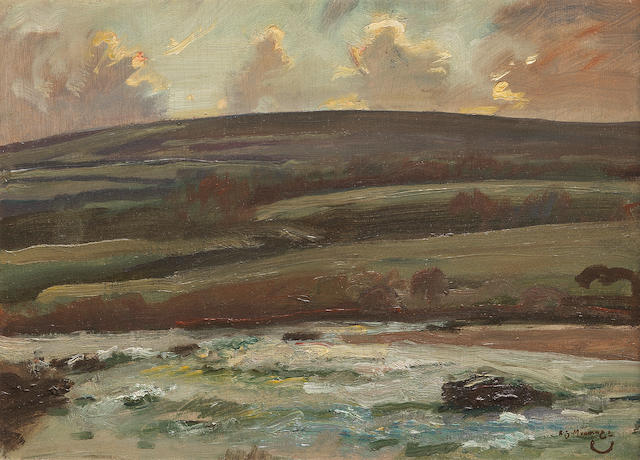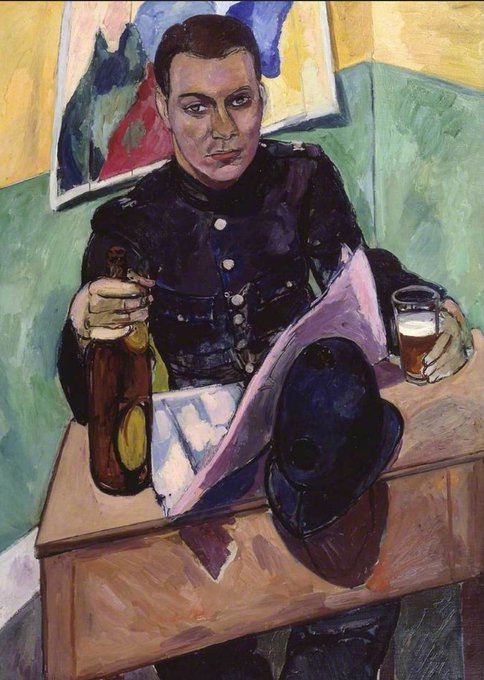James Hamilton is talking about his biography of 'John Constable: Artist and Radical,' at Hatchards Piccadilly on March 24. The picture is 'Seascape Study with Raincloud.' (1827)
https://t.co/Dm67P0U2PB
'Three Tomatoes.' Since her death in 1965, Anne Redpath has become one of the most popular 20thC Scottish painters, known for her rich colours and an expressive, gutsy, style.
'Elm Park Gardens, November.' Freddie Gore was that rare thing in the art world: a prolific and successful painter who also managed to sustain several active and parallel careers. He studied painting at the Ruskin School (later the Slade) while reading Classics at Oxford. (1961)
Throughout Alfred Munnings' memoirs, there are frequent references to his longing to sit by a river and paint. This depiction of the Barle river in Withypool on Exmoor was made in the 1940s. It was an area he frequently returned, to paint the play of light on the water's surface
'A Corner of the Tamar Valley.' Harold Hitchcock's work falls recognisably into the English romantic tradition of William Blake and Samuel Palmer; sometimes slipping freely between the extremes of the French 17thC classicist Claude Lorraine and a touch of 20thC surrealism.
The people of Sitka in Alaska and their non-European culture fired Emily Carr's imagination. She wrote: 'The Indian people and their art touched me deeply. By the time I reached home, my mind was made up. I was going to paint totem poles in their own village settings.' (1931)
In this watercolour from 1907 John Singer Sargent has depicted a detail of the three-arched loggia in the grounds of Villa Giulia at the Borghese Gardens in northern Rome. It's an exercise in painting the presence and absence of light by using warm and cool tones of his palette.
'The Tea Break.' (1955) In the years before WW1 William Roberts was a pioneer, among English artists, in his use of abstract images. In later years he described his approach as that of an 'English Cubist.'
'The City of Romance.' (c1930) Claude Francis Barry created a remarkably varied body of work, which although differing in style and theme over the years, always remains imbued with an individual poetic vision. His work has an emphasis on composition and structure.
Edward Wolfe met PC 77 of the Metropolitan Police in 1927 when he was trying break into his own studio in Grosvenor Road, Pimlico having forgotten his keys. In retrospect, Wolfe thought the bottle of beer was an unwise prop.











